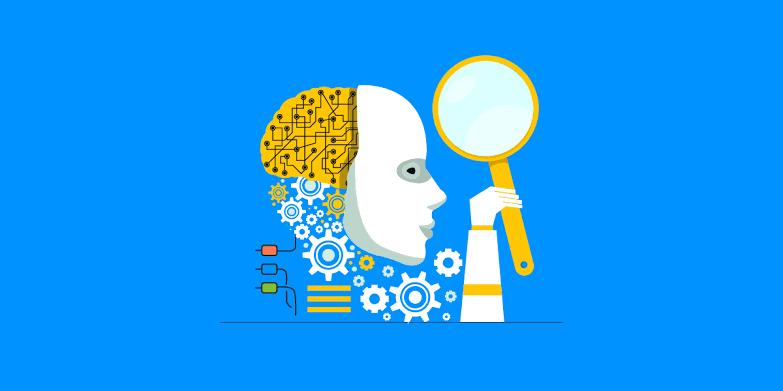AI in 2019: 7 Trends Every Business Must Focus On
26 September 2019 14:00, UTC
24-09-2019 10:31:08 | Technology
Here we are going to explain 7 key AI trends that every business must know.
Scaling up the AI Operations
Well, if you have adopted an AI strategy for top-level decision making and not yet leveraged the same for business operation in all divisions and levels, you are still not utilising the full potential of AI. The most successful AI adoption strategy as of now is to leverage artificial intelligence for all business processes and functions with varying advantages. To implement such multifaceted AI strategy you need a diverse team consisting of IT professionals, AI experts, operations managers, and business strategists.You can now take advantage of a variety of data-driven models for creating AI algorithms that can solve a variety of business problems. This is why it is important to implement AI on smaller projects and gradually scale them for bigger and multifaceted projects as guided by the success of the initial success.
AI in HR Solutions
04-10-2018 12:11:00 | Technology
At present AI adoption for HR processes is facing the challenge of creating a workforce consisting of employees with different skill sets. Using AI-enabled applications and ensuring quality data governance are the next challenges for AI adoption in HR processes.
With the accessibility of AI increasing year by year, AI has become a vital asset for businesses. However, the usability of artificial intelligence is complex, and errors are often made. The solution to this setback is creating three ranks of employees, each equipped with a specific skill set.
In spite of these challenges, AI in HR services and solutions offers the promise of cutting costs, managing legal complications in an efficient manner, enhancing productivity and mitigating the administrative challenges for a company.
Data Identification and Allocation

One of the key capabilities of AI is to identify relevant data, interpret them and convert the data into relevant as well as useful business insights. The identification, labelling, standardising and classification of business data fetched from a variety of sources including internal and external sources remains to be a key challenge and a potential area of promise. While this core capability of AI is already on display across enterprises, more businesses are increasingly looking up to the AI tools to unlock the potential of data.
AI-Based Voice Interaction
We have already been used to the voice-enabled search assistants like Siri, Cortana, and Alexa and these digital assistants already helped to make intelligent voice interaction with gadgets mainstream and everyday affair. Now, in the next phase, we can expect these voice assistants to get into every facet of business interactions. The AI-based voice assistants are increasingly getting better allowing more ways to understand the users and catering contents as well as context-aware and personal help to users. AI for mobile apps and IoT gadgets will be at the forefront of this rapid growth of AI integration across all businesses.Personalization Strategies
24-06-2019 16:31:09 | Technology
AI-Powered Digital Marketing
One of the biggest and frontline beneficiaries of AI has been digital marketing. Thanks to AI, the efficiency of digital marketing initiatives, practices and tools have grown in leaps and bounds in recent times. Digital marketers now can embrace a content strategy that actually works for their audience. From targeting the right audience with precise contents to shaping campaigns that fetch more results in less time, AI-powered digital marketing has played an instrumental role for many businesses.The brightest example of how AI is increasingly becoming the part and parcel of digital marketing campaigns is the way Google made a huge investment in recent times into the AI algorithms. Google has already automated a vast majority of its marketing protocols including both the organic and paid channels. For example, Google AdWord manager now runs campaigns completely independent of any human role.
Predictive Modeling

AI-based predictive modeling will continue to give businesses more ways to understand customers and get closer to them. From understanding buyer intents to boosting customer engagement to reducing cart abandonment rate to increase sales conversion, predictive modelling based on right customer data will give decision making, practices, and tools more precision across all enterprise scenarios.
For a business, nothing matters more than understanding the customer intent and behaviour for the purpose of gaining competitive lead. AI in this respect can play an instrumental role. Predictive models utilized in the process of creating a user or customer persona can actually help to forecast the sales with more precision and to detect the glitches and shortcomings in design and development attributes.
Conclusion
31-08-2018 23:03:00 | Technology
About the Author:
Atman Rathod is the Co-founder at CMARIX TechnoLabs Pvt. Ltd., a leading web and mobile app development company with 13+ years of experience. He loves to write about technology, startups, entrepreneurship and business. His creative abilities, academic track record and leadership skills made him one of the key industry influencers as well.
Social Links:
Linkedin - https://www.linkedin.com/in/rathodatman/
Twitter - https://twitter.com/RathodAtman
Medium: https://medium.com/@rathod.atman
Facebook: https://www.facebook.com/CMARIXTechnoLabs/